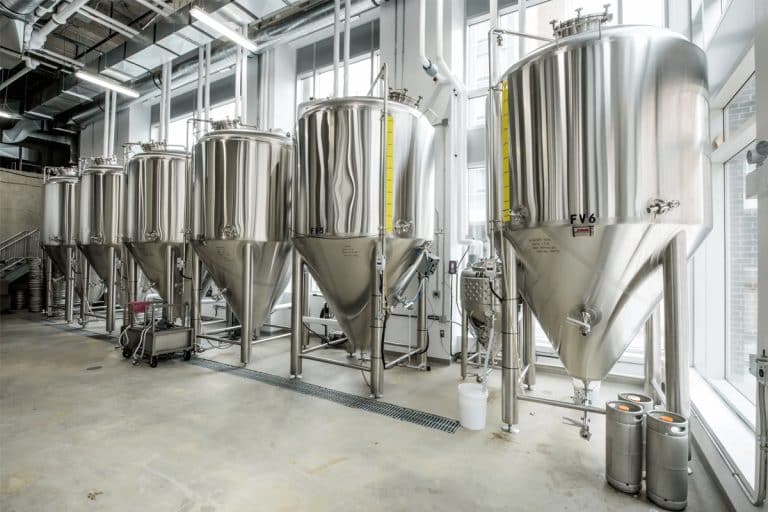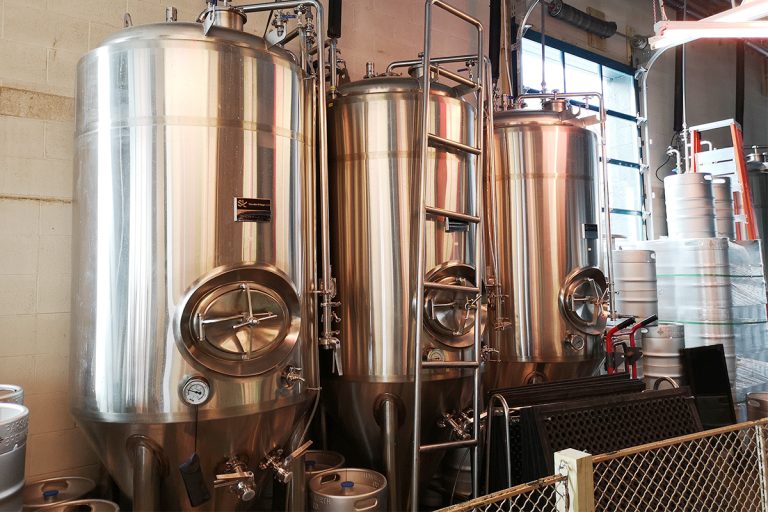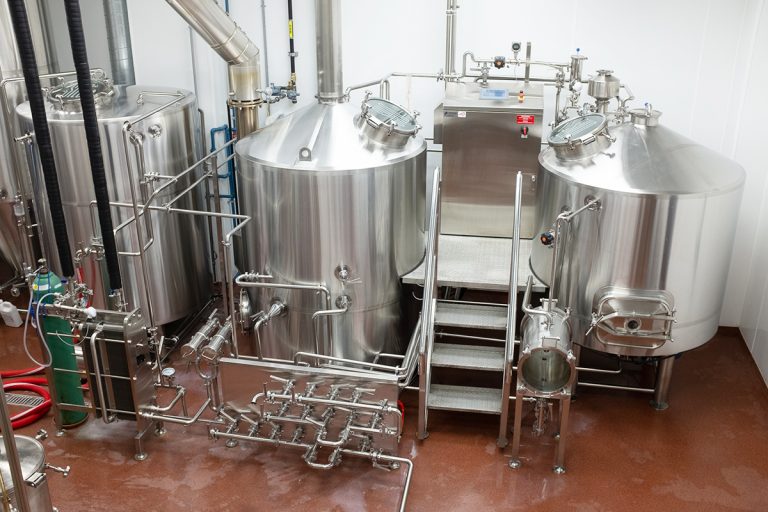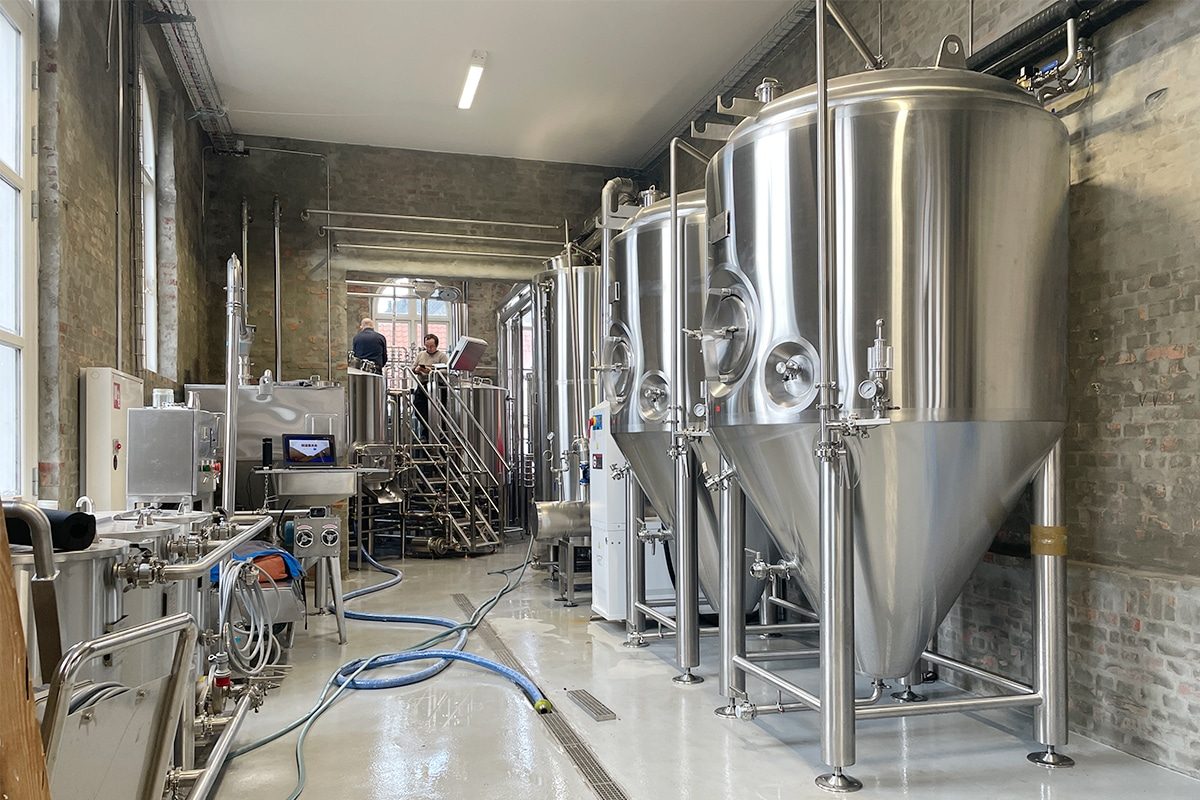
What Is The Best Stainless Steel For Brewing?
In the intricate world of brewing, where science intertwines with creativity, the choice of materials is a critical factor that can either elevate or hinder the quality of the final product. Among the myriad options available to brewers, stainless steel emerges as a stalwart ally, revered for its unparalleled combination of durability, corrosion resistance, and hygienic properties. As brewers strive to push the boundaries of innovation and excellence, the quest for the best stainless steel for brewing becomes paramount.
In this comprehensive exploration, we embark on a journey to unravel the mysteries of stainless steel, delving into its various grades, properties, and applications in the brewing realm. By understanding the nuances of stainless steel, brewers can unlock new possibilities, enhance the quality of their brews, and embark on a path toward brewing mastery. Join us as we navigate the labyrinth of stainless steel to uncover the keys to brewing greatness.
Complete Guide
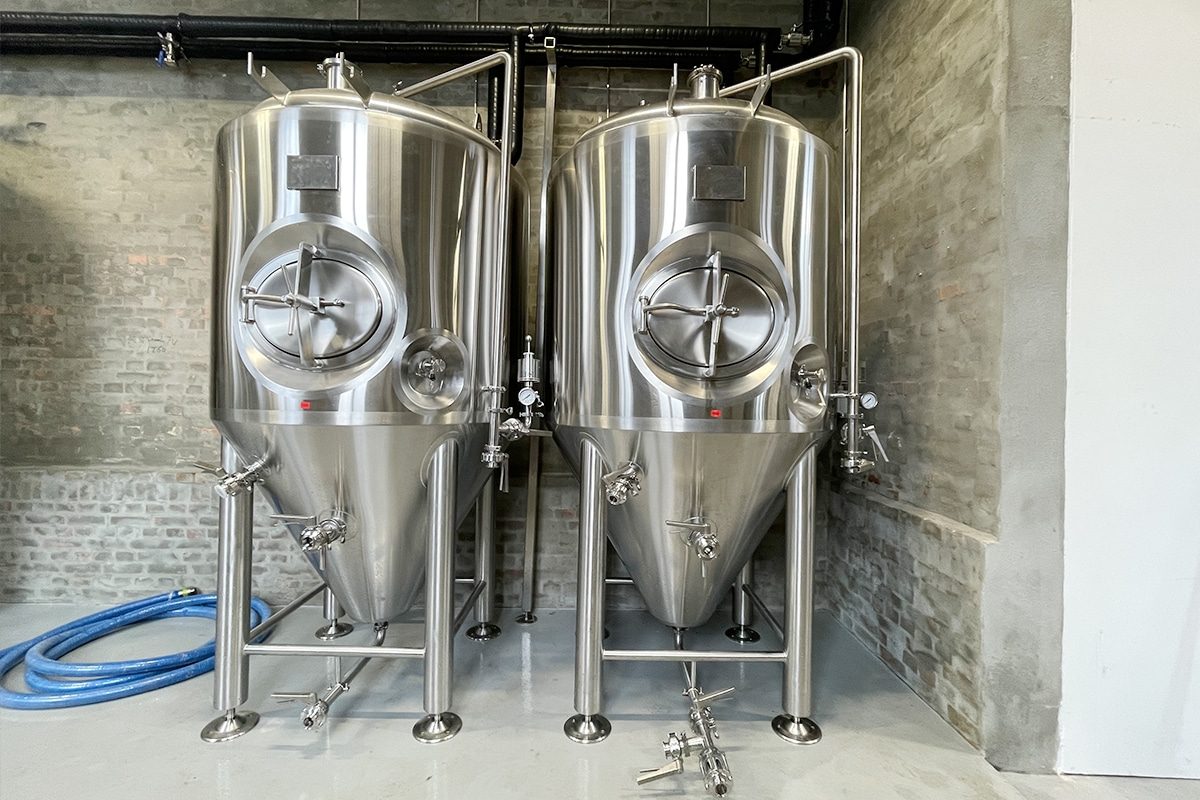
Learn About Stainless Steel
Known as the backbone of modern brewing equipment, stainless steel embodies an exceptional blend of strength, resilience and versatility. To understand its importance in the brewing world, it’s necessary to delve into its ingredients and grades.
What is stainless steel?
At its core, stainless steel is an alloy composed primarily of iron with a high chromium content (at least 10.5% by mass). This chromium content is what distinguishes stainless steel from other types of steel because it forms a passive oxide layer on the surface, called chromium oxide. This layer acts as a shield, protecting the underlying metal from corrosion and rust, even in harsh environments. In addition, stainless steel often contains other alloying elements such as nickel, molybdenum, and manganese that contribute to its overall strength, corrosion resistance, and other desired properties.
Understanding these basic aspects of stainless steel lays the foundation for choosing the best grade for your brewery equipment. Whether you are equipping a new brewery or upgrading existing equipment, your stainless steel choice will play a key role in shaping the quality, longevity, and success of your brewing operation.
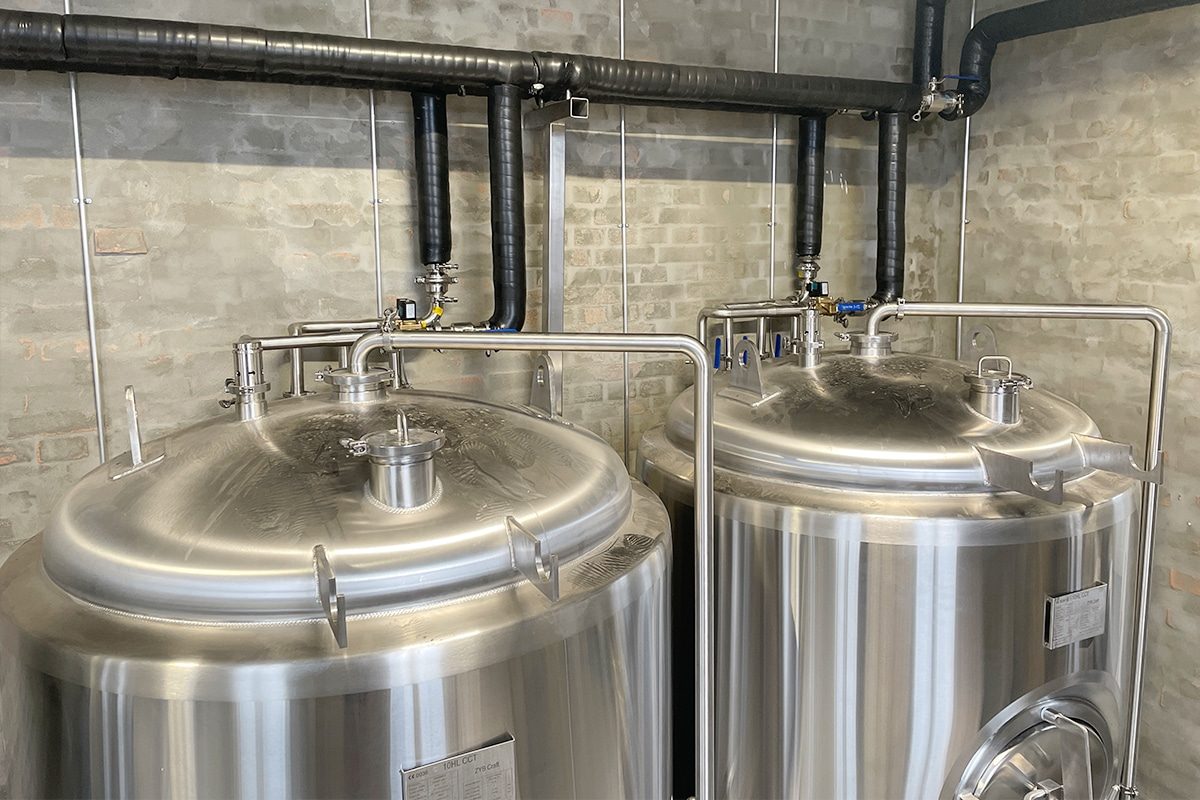
Factors to Consider When Choosing Stainless Steel for Brewing
Choosing the best stainless steel for brewing requires a thoughtful analysis of a variety of factors, each of which plays a key role in determining the suitability, performance, and longevity of your brewing equipment. From corrosion resistance to cost considerations, brewers must weigh multiple factors to make informed decisions and optimize their brewing operations. Here are the key considerations to remember when choosing stainless steel for brewing:
Corrosion Resistance
- Key Considerations: Corrosion is a major issue in brewing environments, and exposure to acids, detergents, and chloride-rich conditions can compromise the integrity of your brewing equipment.
- Grade Selection: Select a stainless steel grade with the appropriate level of corrosion resistance based on specific brewing conditions. Grade 304 stainless steel offers good corrosion resistance for most brewing applications, while grade 316 stainless steel offers superior protection in acidic environments and chloride-rich conditions.
- Environmental Factors: When evaluating corrosion resistance requirements for brewing equipment, consider factors such as pH, chloride concentration in the water source, and the presence of acidic brewing ingredients.
- Long-Term Durability: Prioritize stainless steel grades that offer long-term corrosion resistance, minimizing the risk of equipment degradation and ensuring consistent brewing quality over the long term.
Solderability And Fabrication
- Welding Techniques: Proper welding techniques help maintain the structural integrity and longevity of your brewery equipment. Choose a stainless steel grade known for its excellent weldability, such as grade 304 stainless steel, to facilitate seamless manufacturing and assembly.
- Professional Welding Considerations: For higher alloy content grades (such as grade 316 stainless steel), consult an experienced welder and use professional welding techniques (such as back purge and controlled heat input) to maintain corrosion resistance and prevent the welding process sensitization.
- Fabrication Expertise: Work with experienced fabricators and welding professionals familiar with stainless steel to ensure high-quality workmanship and adherence to industry best practices.
Hygiene Considerations
- Hygienic Design: Employ hygienic design principles in brewing equipment layout and construction to minimize the risk of contamination and maintain the purity and quality of the final product.
- Smooth, Non-Porous Surface: Choose stainless steel with a smooth, non-porous surface to inhibit bacterial growth and promote thorough cleaning and hygiene.
- Cleaning and Disinfection: The inherent hygienic properties of stainless steel make it easy to clean and disinfect, minimizing the risk of bacterial contamination. Implement a rigorous cleaning regimen, including clean-in-place (CIP) procedures, to maintain sanitary conditions on brewing equipment and prevent the growth of microorganisms.
Cost And Longevity
- Upfront Investment: Consider the initial cost of stainless steel brewing equipment based on your budget and brewing goals. While stainless steel may have a higher upfront cost than alternative materials like plastic or aluminum, its superior longevity and durability make it a worthwhile investment for serious brewers.
- Total Cost of Ownership: Consider the total cost of ownership, taking into account maintenance expenses, equipment life, and potential downtime associated with stainless steel alternatives.
- Life Cycle Cost Analysis: Evaluate the long-term cost-effectiveness of stainless steel based on its durability, minimal maintenance requirements, and potential for extended service life compared to alternative materials. Stainless steel’s recyclability and sustainability also contribute to its overall cost-effectiveness over time.
When selecting stainless steel for brewery equipment, brewers must carefully evaluate factors such as corrosion resistance, weldability and fabricability, sanitation considerations, and cost-effectiveness to ensure optimal performance, longevity, and quality in brewing operations. By selecting the best stainless steel grade and following industry best practices, brewers can improve their processes, minimize maintenance costs, and produce consistently high-quality beer for years to come.
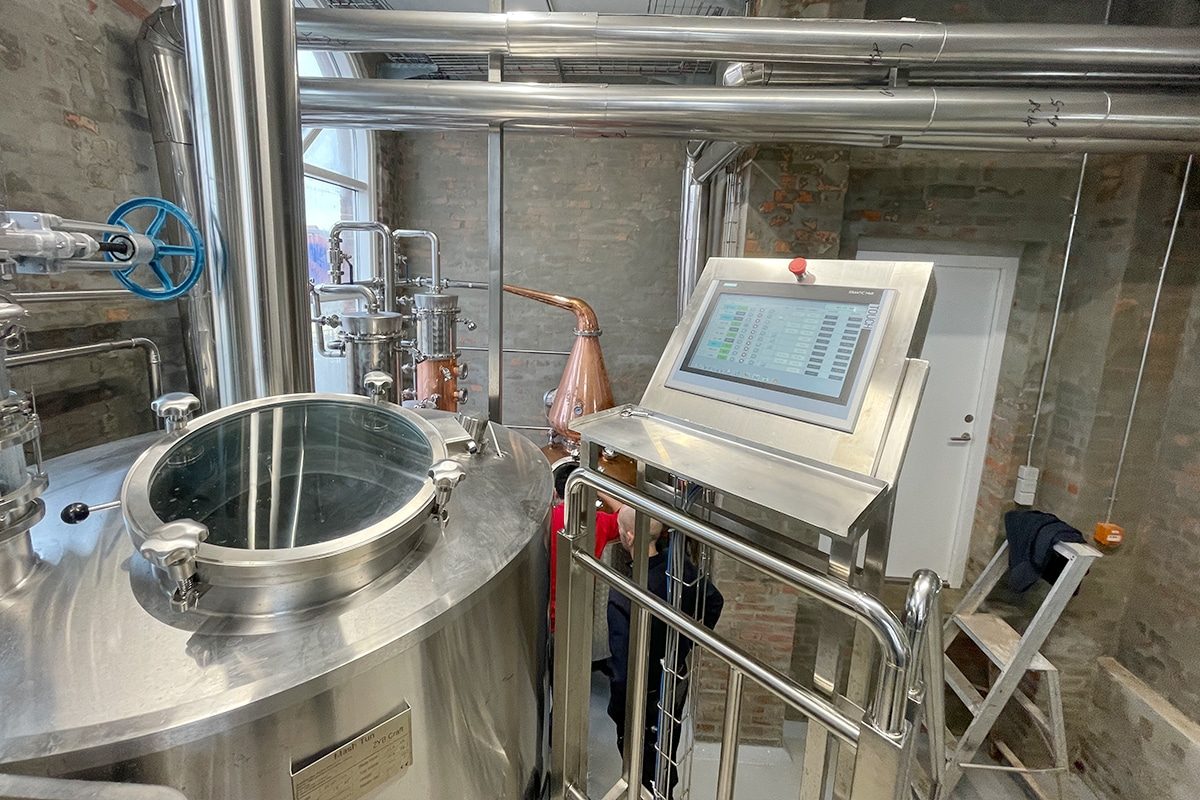
Best Stainless Steel for Brewing
When it comes to choosing the best stainless steel for brewing, brewers are faced with countless choices, each with their unique properties and applications. Among the wide variety of stainless steel grades, three stainless steels stand out as prominent contenders for brewing equipment: Grade 304 stainless steel, Grade 316 stainless steel, and other specialty grades tailored to specific brewing needs.
Grade 304 stainless steel
- Corrosion Resistance: Grade 304 stainless steel has a balanced composition of chromium and nickel, providing excellent corrosion resistance in most brewing environments. It is ideal for fermenters, brewing vessels, and kegs used in standard brewing operations.
- Weldability: Grade 304 stainless steel is known for its excellent weldability, allowing for seamless manufacturing of brewery equipment and custom fittings. Brewers can rely on its versatility and ease of soldering for a wide range of applications.
- Versatility: A workhorse of the brewing industry, 304-grade stainless steel offers the perfect blend of corrosion resistance, weldability, and formability, making it suitable for a variety of brewing applications.
- Cost-Effective: Grade 304 stainless steel offers a cost-effective solution for brewers looking for reliable performance and longevity without breaking the bank. Its affordability, coupled with its proven track record in brewing, makes it a popular choice for breweries of all sizes.
Grade 316 stainless steel
- Superior Corrosion Resistance: Grade 316 stainless steel is known for its superior corrosion resistance, especially in acidic environments and chloride-rich conditions, making it the gold standard for breweries producing sour beers or operating in coastal areas.
- Enhanced Alloy Content: Higher levels of chromium, nickel, and molybdenum in grade 316 stainless steel provide additional protection against pitting, crevice corrosion, and chloride-induced stress corrosion cracking, ensuring the longevity and reliability of your brewing equipment.
- Ideal for Specialty Beers: Breweries brewing sour beers or operating in areas with aggressive water chemistry may benefit from the superior corrosion resistance of grade 316 stainless steel. It’s also ideal for equipment that undergoes rigorous cleaning regimens or is exposed to harsh chemicals.
- Longevity Investment: While grade 316 stainless steel may require a higher initial investment compared to grade 304 stainless steel, its unparalleled durability, and longevity make it a prudent investment for brewers committed to excellence and long-term sustainability.
Other stainless steel grades
- 304L and 316L Stainless Steel: Low-carbon variations of grades 304 and 316 stainless steel offer improved weldability and reduced sensitization susceptibility, respectively. They are suitable for welding applications where maintaining corrosion resistance is critical.
- 2205 Duplex Stainless Steel: Duplex stainless steel is becoming increasingly popular in brewing equipment, especially high-pressure vessels and heat exchangers, due to its increased strength and corrosion resistance. It provides a powerful solution for demanding brewing environments.
In the pursuit of brewing excellence, the choice of stainless steel grade plays a key role in the quality, consistency, and longevity of the final product. Grade 304 stainless steel is a versatile and cost-effective choice for many brewing applications, while grade 316 stainless steel is becoming the first choice for breweries that require superior corrosion resistance and durability. Whether choosing from these stable grades or exploring special variations suited to specific brewing needs, brewers can rest assured that stainless steel remains the cornerstone of brewing innovation, craftsmanship, and uncompromising quality.
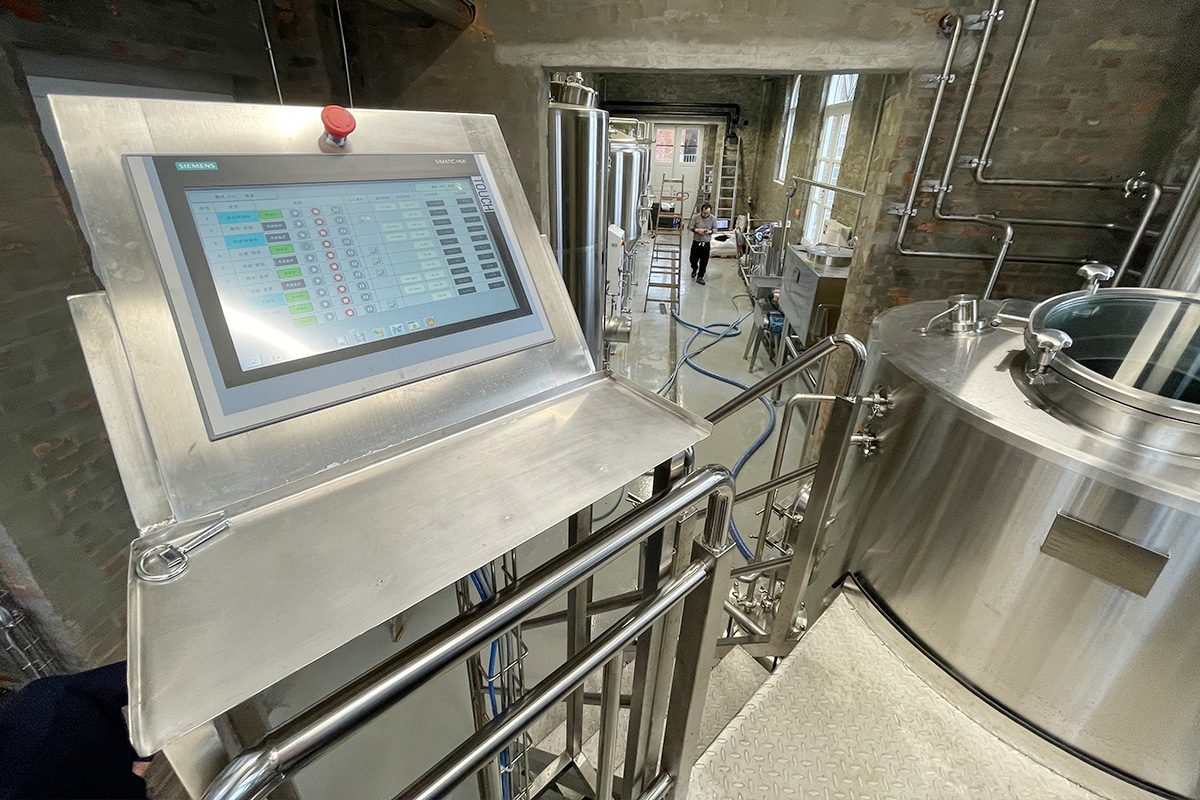
Maintenance of Stainless Steel Brewery Equipment
Ensuring the longevity and performance of stainless steel brewery equipment requires diligent care and maintenance. From routine cleaning and sanitizing to passivation, brewers must prioritize proper maintenance to maintain the integrity and quality of their brewing vessels, fermentation tanks, and accessories. Here is a comprehensive guide to maintaining stainless steel brewery equipment:
Clean and Disinfect
- Routine Cleaning: Implement a regular cleaning schedule to remove organic residue, yeast deposits, and other contaminants from brewing equipment surfaces. Use a mild detergent, warm water, and non-abrasive cleaning tools to avoid scratching or damaging the stainless steel surface.
- Clean-In-Place (CIP) Systems: Invest in an automated CIP system to streamline the cleaning process and ensure thorough coverage of the interior of your brewing equipment. Follow the manufacturer’s guidelines for CIP chemical concentration, temperature, and cycle times for optimal cleaning results.
- Disinfection Protocol: Make it a priority to disinfect brewing equipment after cleaning to eliminate bacteria, yeast, and other microorganisms that may affect beer quality. Use a food-grade sanitizer approved for brewing applications, following recommended contact times and concentrations for effective microbial control.
- Verification and Validation: Periodically verify and validate cleaning and disinfection procedures through microbiological testing and visual inspection to confirm compliance with industry standards and regulatory requirements.
Passivation
- Learn About Passivation: Passivation is a chemical process that enhances the corrosion resistance of stainless steel by removing free iron and contaminants from the surface and promoting the formation of a protective oxide layer.
- Benefits of Passivation: Passivation helps restore the passivation film on stainless steel surfaces that may have been damaged during manufacturing, welding, or long-term exposure to harsh environments. It improves corrosion resistance and extends the life of brewery equipment, especially in acidic or chloride-rich brewing conditions.
- Passivation Methods: Choose from a variety of passivation methods, including citric acid passivation, nitric acid passivation, and electropolishing, depending on equipment size, complexity, and regulatory requirements.
- Professional Passivation Services: Consider outsourcing passivation to experienced professionals equipped with specialized equipment and expertise to ensure thorough and effective treatment of brewing equipment surfaces.
Preventive Maintenance
- Check for Damage: Regularly inspect brewery equipment for signs of damage, corrosion, or wear, including scratches, dents, or pits. Address any issues promptly to prevent further deterioration and maintain brewing quality.
- Temperature and Humidity Control: Maintain optimal environmental conditions in your brewing facility to minimize the risk of corrosion and microbial growth. Control temperature and humidity levels to prevent condensation and moisture build-up on stainless steel surfaces.
- Protective Coatings: Consider applying protective coatings or finishes to stainless steel parts exposed to corrosive brewing environments or harsh cleaning chemicals. Choose a coating that meets food-grade standards and is approved for brewery applications.
- Lubricate Moving Parts: Apply a food-grade lubricant to moving parts, such as valves, hinges, and seals, to reduce friction, prevent binding, and extend equipment life.
Training And Education
- Employee Training: Provide brewery employees with comprehensive training on proper cleaning, sanitizing, and maintenance procedures for stainless steel equipment. Stress the importance of following protocol and the impact of neglect on brewing quality and safety.
- Continuous Improvement: Foster a culture of continuous improvement and knowledge sharing within the brewery team. Stay up to date on advances in cleaning technology, sanitation practices, and stainless steel maintenance to optimize brewery operations.
By prioritizing proper care and maintenance of stainless steel brewery equipment, breweries can protect the integrity of their products, ensure brew consistency, and adhere to sanitation standards throughout the brewing process. From meticulous cleaning and sanitizing regimens to specialized passivation treatments, investing in the longevity and quality of stainless steel equipment can help achieve brewing excellence and satisfy the discerning palates of beer drinkers around the world.
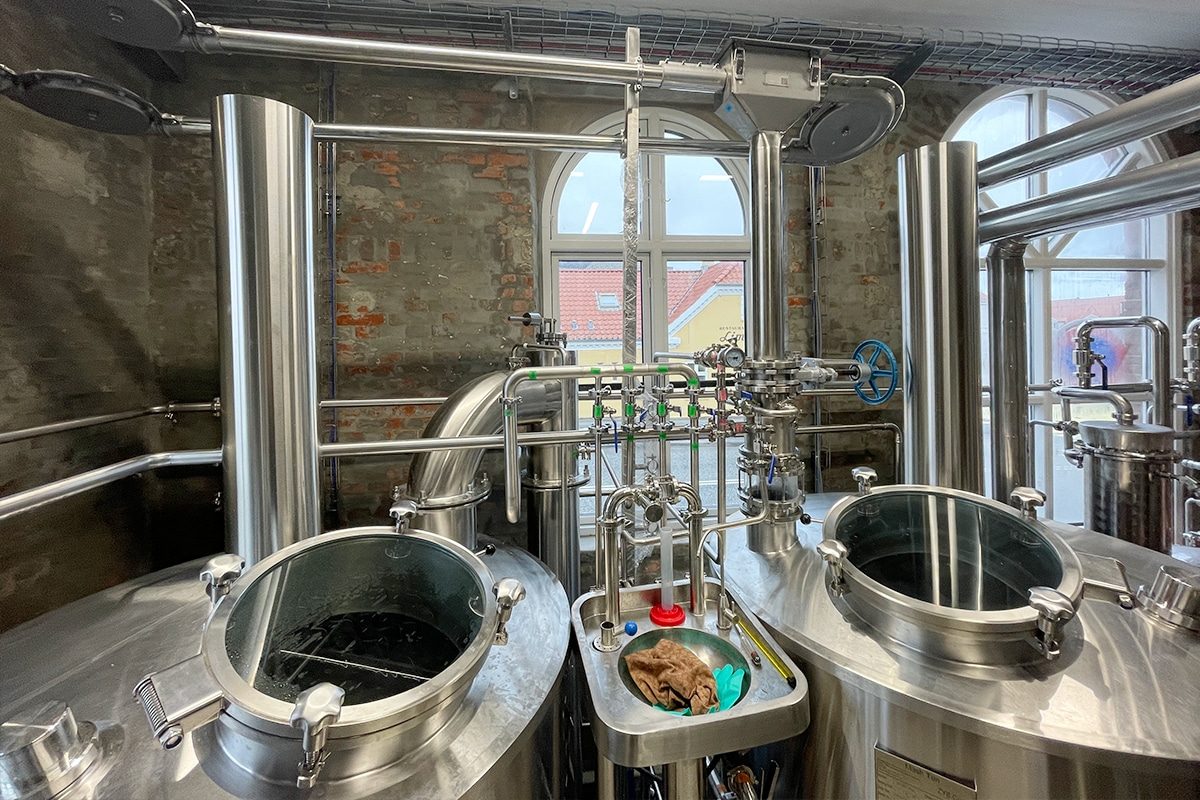
Summary
In the pursuit of brewing excellence, the choice of stainless steel serves as the cornerstone of quality, durability, and innovation. From Grade 304 Stainless Steel’s versatile performance to Grade 316 Stainless Steel’s unparalleled corrosion resistance, brewers are empowered to select the best material for their unique brewing needs. Factors such as corrosion resistance, weldability, sanitary considerations, and cost must be carefully weighed to ensure optimal brewing equipment performance and longevity. By embracing meticulous maintenance practices, including cleaning, sanitizing, and passivation, brewers can uphold the integrity of stainless steel brewery equipment and deliver consistently exceptional beer.
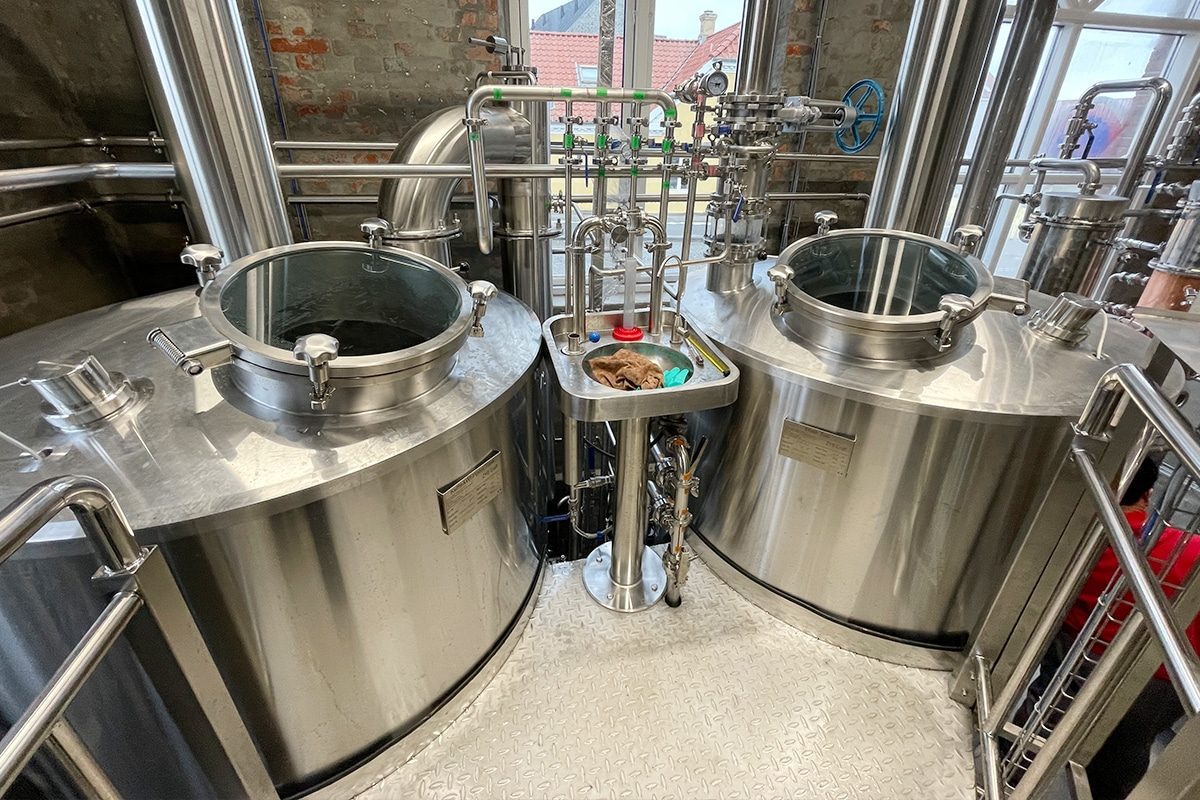
Get A Turnkey Brewery Solution
When it comes to sourcing the best stainless steel for brewing, working with a trusted brewery solutions provider like ZYB Craft can streamline the process and ensure the best results. With years of expertise and a commitment to excellence, ZYB Craft provides turnkey brewery solutions tailored to meet the unique needs of breweries ranging from small craft breweries to large production facilities.
By leveraging ZYB Craft’s comprehensive services, brewers can obtain a variety of stainless steel equipment made from high-quality materials, including grade 304 and grade 316 stainless steel. From fermentation tanks and mash tuns to kegs and piping systems, our team of experts ensures every component meets strict quality standards for durability, performance, and hygiene.
By choosing ZYB Craft as your brewery solutions partner, you receive a full suite of services, including design consultation, equipment customization, installation, and ongoing support. Our commitment to excellence and customer satisfaction ensures your brewery operates at peak efficiency, producing quality beer while maximizing profitability and sustainability.

